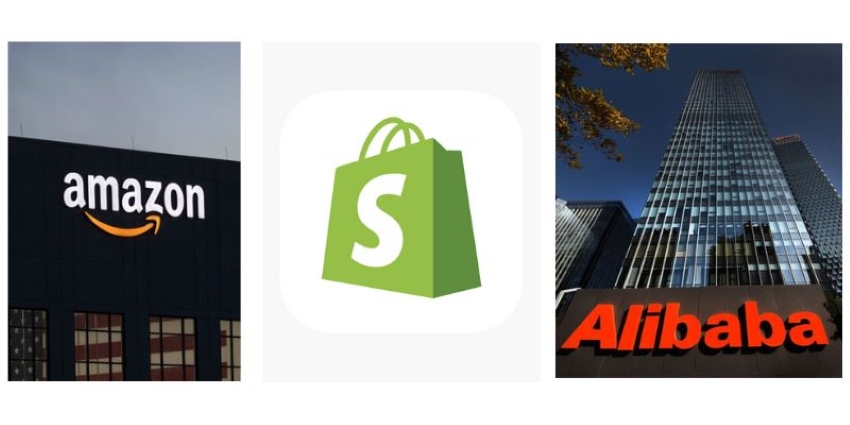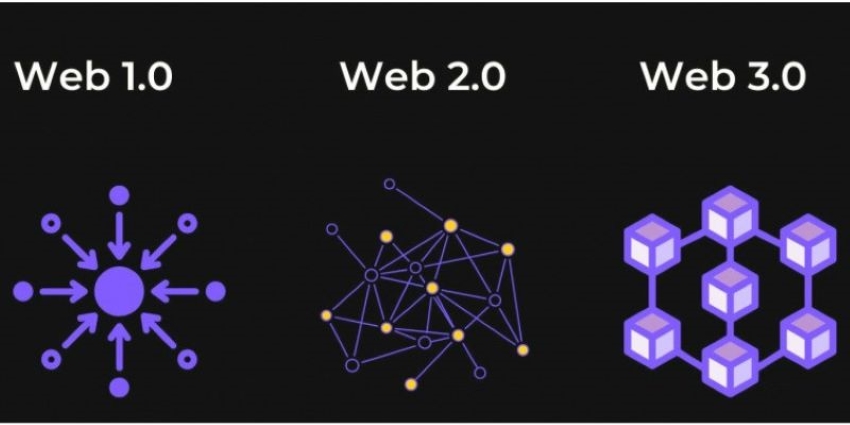Blockchain applications in e-commerce help optimize security, transparency and reduce costs. Discover the benefits and challenges of this technology now.
In the digital era, e-commerce is growing rapidly, leading to the need for security, transparency and transaction efficiency. The application of blockchain in e-commerce has become an optimal solution, helping to improve transaction speed, ensure data integrity and reduce intermediary costs. This article will analyze blockchain in e-commerce, its benefits, practical applications and challenges when implementing this technology.
Blockchain applications in e-commerce
1. Enhance transaction security with blockchain
Full Encryption: Every transaction is encrypted and stored in a decentralized ledger, creating a solid layer of protection against fraudulent activities.
Data immutability: Once data is recorded on the blockchain, it cannot be changed, ensuring absolute integrity and tamper-proofing.
Smart Identity Authentication: Using smart contracts to authenticate customer identities eliminates the risk of fake accounts and increases trust.

Thanks to blockchain, all transactions are securely secured.
2. Transparency and traceability of goods
Enhance customer confidence: Customers can easily check transaction history and verify product information, ensuring transparency and clear origin.
Optimize supply chain management: Businesses have the ability to tightly control the entire supply chain, from production to delivery, improving efficiency and minimizing risks.
Commercial fraud prevention: A transparent and traceable system helps to significantly reduce commercial fraud, especially for high-end goods and food, protecting consumer rights.
3. Improve payment efficiency with blockchain
The role of blockchain in e-commerce transactions is increasingly being affirmed as this technology is opening a new era for financial transactions, bringing outstanding improvements in efficiency and cost.
By eliminating the role of traditional financial intermediaries such as banks, blockchain helps to significantly reduce transaction fees, facilitating payment activities.

Fast and efficient transactions
Not only that, blockchain also promotes cross-border payments to be faster and more economical than ever. Thanks to the ability to operate continuously 24/7 and integrate cryptocurrencies, transactions can be made anytime, anywhere, without being limited by bank hours.
4. Smart contracts in e-commerce
Smart contracts, with their ability to automate transaction processes, are ushering in a new era for e-commerce. This mechanism not only eliminates human errors, but also ensures that contract terms are executed transparently and accurately, thereby significantly reducing disputes.
The applications of smart contracts in e-commerce are diverse and revolutionary:
Automate the warranty and refund process: When pre-set conditions in the smart contract are met (e.g. product is defective, not as described), the warranty or refund process will be triggered automatically, quickly and transparently.
Automatic Delivery: Smart contracts can be used to track the delivery process and automatically disburse payment to the seller when the goods are successfully delivered to the buyer.
Increased trust and transparency: Recording all transactions on the blockchain helps create an immutable ledger, ensuring high transparency and trust for e-commerce transactions.
With these outstanding advantages, smart contracts promise to become an indispensable tool in e-commerce, helping to improve efficiency, minimize risks and bring better experiences for both buyers and sellers.
5. Improve customer experience with blockchain
Blockchain technology is revolutionizing customer experience across multiple industries, offering unparalleled benefits in personalization, security, and transparency.
Rewards points and loyalty programs: Blockchain enables the creation of transparent and secure reward points systems. Customers can easily accumulate, track and use them across multiple platforms, while eliminating the risk of fraud or loss of points. Loyalty programs are also more effective due to their high level of personalization, allowing businesses to better engage and maintain relationships with customers.
Information Security: Thanks to the immutable and encrypted nature of blockchain, customers' personal information is securely protected from cyber attacks and data breach risks, enhancing customer trust in the business.
Peer-to-Peer (P2P) Transactions: Additionally blockchain facilitates P2P transactions directly between users without the need for intermediaries. This model reduces costs, speeds up transactions, and gives users more control.

Blockchain brings great customer experience
Challenges in applying blockchain in e-commerce
Despite its many benefits, the application of blockchain technology in e-commerce still faces some significant challenges:
1. High initial implementation costs
Building and deploying a blockchain system requires significant investment in infrastructure, technology, and highly skilled human resources.
The cost of training and recruiting personnel to operate and maintain the blockchain system is also a factor that needs to be carefully considered.
2. Performance issues
The transaction processing speed of blockchain is currently still limited compared to traditional systems, especially when the number of transactions increases.
Blockchain scalability needs to be improved to meet the growing transaction demands of e-commerce.
3. Legal restrictions
Currently, many countries still do not have a clear and complete legal framework for the application of blockchain in e-commerce.
The fact that some countries have not yet accepted cryptocurrencies as a legal means of payment also creates barriers for e-commerce transactions using blockchain.
To fully exploit the potential of blockchain in e-commerce, it is essential to address these challenges. This requires close cooperation between businesses, technology developers and government regulators.
Businesses applying blockchain
Currently, many large enterprises in the world have been actively exploring and applying blockchain technology to business operations, bringing significant efficiency, some typical examples:
1. Amazon: Optimizing the supply chain and enhancing the customer experience
Amazon, the e-commerce giant, is testing blockchain in supply chain management, helping to track product origins, ensure transparency and fight counterfeiting. In addition, Amazon also uses smart contracts to automate processes such as refunds and warranties, helping to improve customer experience and reduce disputes.
2. Alibaba: Building Trust and Promoting International Trade
Alibaba, China’s leading technology group, is applying Blockchain to trace the origin of products, especially in the agricultural and food sectors. This helps build trust with consumers and fight against counterfeit goods. In addition, Alibaba is also researching the application of cryptocurrency payments in cross-border transactions, to simplify the process and reduce costs.
3. Shopify: Expanding Payment Methods and Empowering Users
E-commerce platform Shopify has been a pioneer in integrating cryptocurrencies into its payment system. Shopify users can choose to pay with Bitcoin, Ethereum, and many other cryptocurrencies, providing flexibility and convenience. Furthermore, Shopify is also developing peer-to-peer (P2P) payment solutions based on Blockchain, which will help eliminate intermediaries and reduce transaction costs.
The above examples show the huge potential of Blockchain in revolutionizing e-commerce. Innovation and creativity in the application of this technology will open up many new opportunities for businesses, while bringing practical benefits to consumers.

Amazon, Shopify & Alibaba are the 3 "big guys" applying blockchain to business
Blockchain in e-commerce not only helps improve security and transparency, but also optimizes operating costs and improves user experience. Although there are still many challenges, this technology trend is still constantly developing. To stay ahead of the technology, businesses need to proactively research and deploy blockchain right now.
Want to learn more about blockchain applications in e-commerce? Don't forget to visit ONUS to keep up with the latest technology trends








